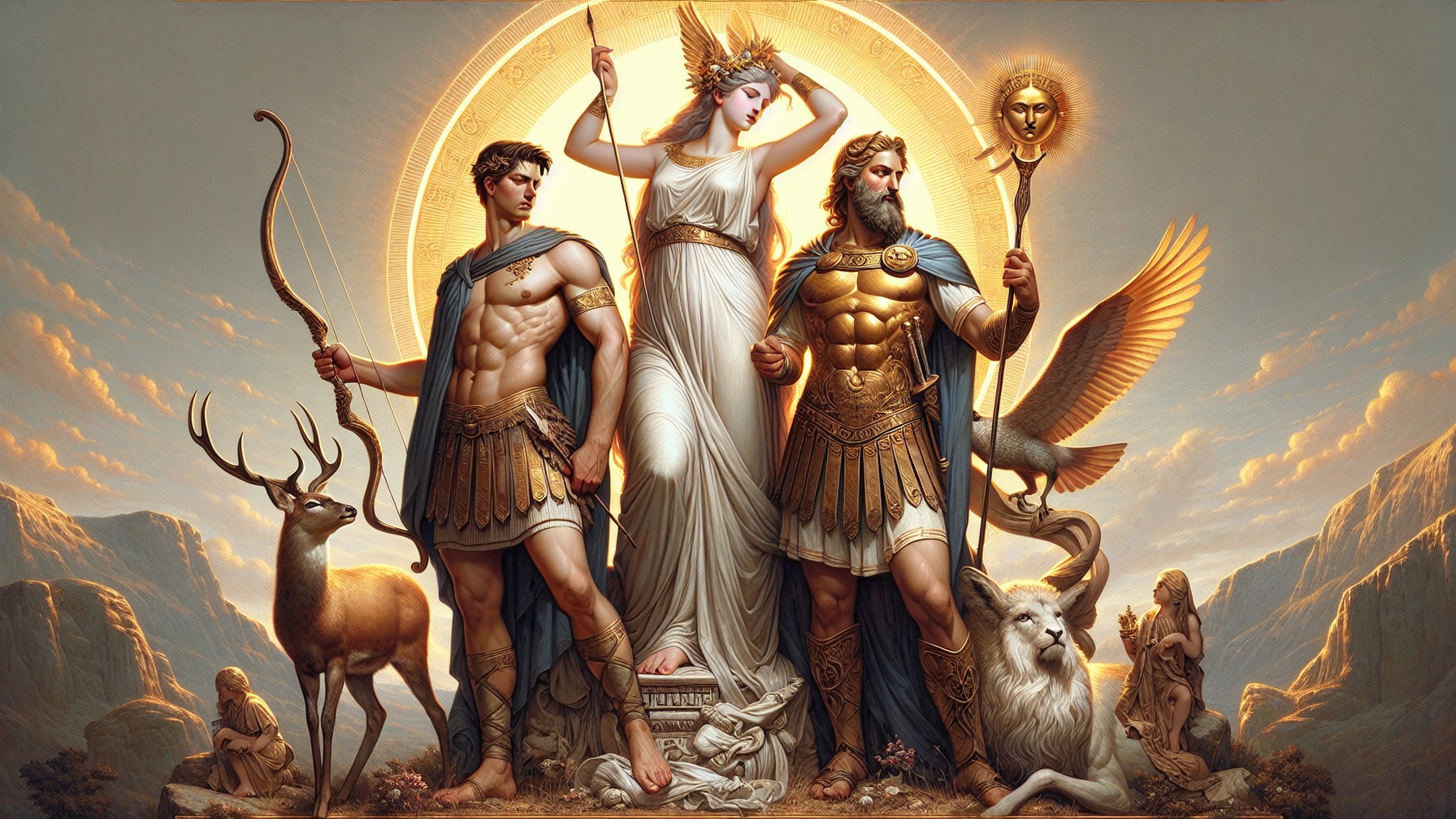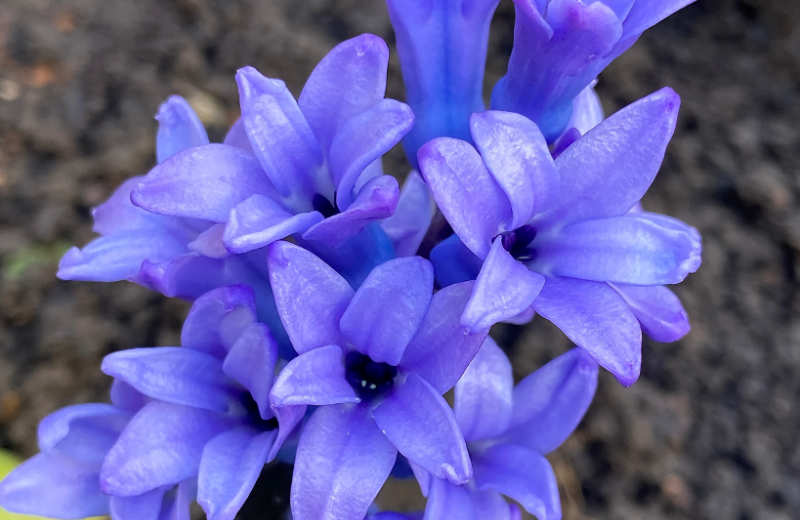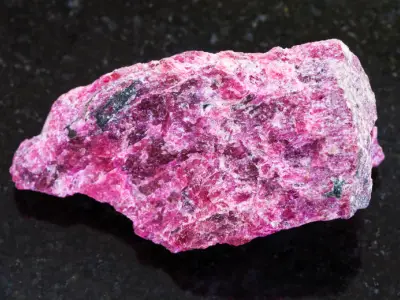Greek mythology is filled with tales of love, loss, and transformation, and the story of Hyacinthus is no exception. A figure both tragic and beautiful, his myth has captivated people for centuries.
But who was Hyacinthus? What powers did he possess? And why is he still remembered today? Whether you’re a lover of mythology or just curious about the origins of the hyacinth flower, this blog post takes you through the key aspects of Hyacinthus’ fascinating story.
Jump to:
Who Was Hyacinthus?
In Greek mythology, Hyacinthus was a beautiful Spartan prince known for his striking appearance and youthful charm. He was the son of King Amyclas and Queen Diomede, and his beauty was said to be so extraordinary that even the gods fell in love with him.
Hyacinthus attracted the attention of several powerful deities, but his story is most famously tied to Apollo, the god of the sun, music, and prophecy. Their relationship was one of deep affection, and Apollo cherished Hyacinthus, often spending time with him, teaching him arts, sports, and music. However, this love story took a tragic turn, leading to one of the most sorrowful myths in Greek legend.
Hyacinthus’ Myths

The Death of Hyacinthus – A Tragic Accident or Jealous Murder?
One of the most well-known versions of the Hyacinth myth tells of how Apollo and Hyacinthus were engaged in a friendly game of discus throwing. Apollo threw the discus high into the air, and as Hyacinthus ran to catch it, the heavy object struck him in the head, killing him instantly.
However, some myths suggest it was no accident.
The wind god Zephyrus, who also loved Hyacinthus, was consumed with jealousy. In his rage, he diverted the discus mid-air, sending it straight towards Hyacinthus and sealing his fate. Some versions of the tale even claim that Boreas, the god of the north wind, also harboured feelings for the young prince, adding further tension to the tragic event.
Apollo was devastated, cradling the body of Hyacinthus and refusing to let Hades take him to the Underworld. “Would that I could give my life for yours!” Apollo is said to have cried. In his grief, the god ensured that Hyacinthus would never be forgotten, transforming him into a deep purple hyacinth flower, with petals said to bear the letters “AI,” a Greek expression of mourning.
A Mortal Rival’s Trickery
A lesser-known version of the Hyacinthus and Apollo story suggests that jealousy did not come from the gods, but from a mortal.
In this telling, a Spartan youth who admired Hyacinthus but resented Apollo’s affection for him devised a scheme. Knowing that Apollo and Hyacinthus often trained together, he secretly switched Apollo’s discus for a heavier, cursed one, ensuring that when Apollo threw it, it would land with deadly force.
This version highlights the human flaws of envy and competition, showing that even in mythology, mortal emotions could shape the destinies of gods and heroes. Apollo, upon realising what had happened, was heartbroken but chose not to seek revenge. Instead, he honoured Hyacinthus by creating the flower that still bears his name today.
Hyacinthus’ Divine Ascension
Some versions of Hyacinthus in Greek mythology suggest that his story did not end with death. While many myths describe his transformation into a flower, another legend claims that Apollo, unwilling to part with his beloved, granted Hyacinthus a place among the stars or allowed his spirit to remain with him in Olympus.
This version of the myth suggests that Hyacinthus became immortal, not in the traditional sense of achieving godhood, but through divine favour. Unlike other mortals, he was not condemned to the Underworld. Instead, he remained in the presence of Apollo, proving that their love was eternal.
Each of these myths offers a different perspective on Hyacinthus and Apollo, but they all share the same theme: love, loss, and remembrance. Whether as a flower, a star, or an immortal presence, Hyacinthus was never truly lost.
What Powers Did Hyacinthus Possess?
While Hyacinthus himself was not a god, he was favoured by divine beings and often depicted as having an almost otherworldly beauty. His most significant “power” was his ability to inspire deep love and devotion—from both gods and mortals alike. Even in death, he was granted a form of immortality through the flower that bears his name.
Some versions of the Hyacinth Greek mythology suggest that Apollo even gave him a place among the stars or allowed him to linger in the realm of the gods in some way. This raises the question: Did Hyacinthus become immortal? While he did not ascend to godhood, his transformation into a flower ensured that his presence remained on Earth in a symbolic way.
Symbols Associated with Hyacinthus

The hyacinth flower is the primary symbol connected to Hyacinthus. Over time, it has come to represent:
- Love and Devotion – As seen in Apollo’s deep sorrow and commitment to preserving Hyacinthus’ memory.
- Jealousy and Revenge – Zephyrus’ role in the story highlights the destructive power of envy.
- Renewal and Transformation – Even in death, Hyacinthus was reborn as a flower, representing nature’s cycle of life and rebirth.
In Ancient Greece, the Hyacinthia festival was held in honour of Hyacinthus, celebrating both his life and his connection to Apollo.
Why Is Hyacinthus Special?
Hyacinthus’ story is a powerful exploration of love, loss, and remembrance. His tale raises deep questions: Did Apollo really love Hyacinthus? The overwhelming grief shown by Apollo suggests that his love was genuine. Unlike many stories of the gods pursuing mortals, this was a relationship built on mutual affection rather than mere conquest.
Hyacinthus in Modern Culture

Hyacinthus’ story continues to influence literature, art, and cultural symbolism, ensuring his legacy lives on. His association with beauty, love, and tragic loss makes him a lasting figure in mythology and beyond.
Hyacinthus in Art and Literature
The Hyacinthus and Apollo myth has been a source of inspiration for many artists and writers, often depicting the themes of love, grief, and transformation.
One of the most famous artistic representations is Jean Broc’s painting The Death of Hyacinthos, which captures the moment Apollo mourns his fallen lover. Similarly, ancient Greek pottery and Renaissance artwork frequently illustrate the discus-throwing scene or Apollo’s sorrowful embrace of Hyacinthus.
In literature, the Hyacinth myth has been referenced in various poems and novels, reflecting its emotional depth and enduring appeal. Writers across different periods have explored the themes of jealousy, loss, and eternal remembrance, cementing Hyacinthus’ place in storytelling traditions.
The Hyacinth Flower as a Symbol
Beyond mythology, the hyacinth flower remains a powerful emblem of beauty, sorrow, and devotion. In some cultures, it is used in funeral rites or as a symbol of remembrance, honouring lost loved ones. The flower’s deep purple hue and the myth’s association with mourning have led to its use in poetry and visual art to represent grief and eternal love.
Recommended for you!
Best SellersFrequently Asked Questions About Hyacinthus
Was Hyacinthus a god?
Hyacinthus was a mortal prince, not a god. However, he was deeply loved by Apollo, and some myths suggest that he was granted a form of immortality through his transformation into the hyacinth flower.
What did Hyacinthus look like?
Ancient descriptions and artistic depictions portray Hyacinthus as a young man of extraordinary beauty, often with curly hair, delicate features, and a radiant, athletic physique. His beauty was so striking that he attracted the attention of gods like Apollo, Zephyrus, and Boreas.
What does the hyacinth flower symbolise today?
The hyacinth flower symbolises remembrance, sorrow, and devotion, reflecting the tragedy of Hyacinthus’ death. It can also represent rebirth and renewal, as Apollo’s love ensured that Hyacinthus lived on in nature.
Is the Hyacinthus myth linked to any ancient festivals?
The Hyacinthia festival was held in Sparta in honour of Hyacinthus. It was a three-day event that combined mourning rituals for his death with celebrations of renewal, likely connected to Apollo’s role in his transformation.
Did Hyacinthus have a family?
Hyacinthus was the son of King Amyclas of Sparta and Queen Diomede. Some myths also mention siblings, but they play little to no role in his legend.
Were there any variations of the myth in different regions of Greece?
While the Apollo and Hyacinthus myth is most closely tied to Sparta, some Thracian and Macedonian traditions had slight variations, often altering the role of Zephyrus or Boreas in the story. The Hyacinthia festival also suggests that the myth had a strong regional significance.
How does the story of Hyacinthus compare to other Greek myths about transformation?
Hyacinthus’ story in Greek mythology is similar to other transformation myths, such as Narcissus, Daphne, and Cyparissus, where people are turned into elements of nature due to love, loss, or divine intervention. Each of these myths carries themes of eternal remembrance.
Has the myth of Hyacinthus influenced modern storytelling?
The story has inspired literature, poetry, music, and even LGBTQ+ interpretations of mythology. Writers and artists continue to explore themes of love, jealousy, and tragic fate, making Hyacinthus and Apollo one of the most enduring myths from ancient Greece.
Study Greek Mythology for £29
Hyacinthus’ myths offer a glimpse into the fascinating complexities of Greek mythology. If you’re captivated by these ancient stories and their modern interpretations, deepen your understanding with our Greek Mythology Diploma Course at Centre of Excellence. This fascinating course offers an in-depth exploration of the myths, legends, and cultural significance of ancient Greece. By enrolling today, you can enjoy a discounted price of just £29.













